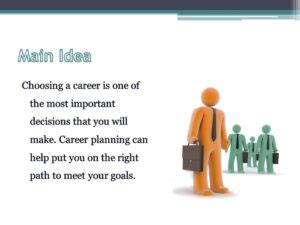In the ever-evolving landscape of modern employment, the distinction between a “career” and a “job” has become increasingly blurred. While traditional notions of career paths have been disrupted by globalization, technological advancements, and changing workforce dynamics, the fundamental essence of both a career and a job remains the same: paid work that contributes to one’s livelihood.

Understanding the Terminology
The term “career” often connotes a long-term, planned progression in a specific field or profession. Historically, careers were associated with upward mobility, increased responsibility, and a gradual accumulation of skills and experience. In contrast, the term “job” was typically used to describe a more transient or routine form of employment that may not necessarily lead to significant career advancement.
However, in today’s rapidly changing job market, the lines between careers and jobs have become fluid. Many individuals now experience a series of jobs throughout their working lives, each offering valuable skills and experiences that contribute to their overall professional development. As a result, the traditional concept of a linear career path has given way to a more flexible and adaptable approach to employment.
The Convergence of Careers and Jobs
The convergence of careers and jobs can be attributed to several key factors:
- Changing Workforce Dynamics: The rise of the gig economy, freelance work, and remote employment has created a more flexible and decentralized labor force. Individuals are increasingly able to choose temporary or project-based work, allowing them to tailor their career paths to their evolving interests and circumstances.
- Globalization and Technological Advancements: Globalization has increased competition and demand for specialized skills. Technological advancements have transformed job roles and created new opportunities, requiring individuals to adapt and acquire new skills throughout their careers.
- Shifting Employer Expectations: Employers now seek employees with a diverse range of skills and experiences. This has led to a greater emphasis on transferable skills and the recognition that valuable contributions can be made at all levels of an organization.
Benefits of Embracing the Convergence
Embracing the convergence of careers and jobs offers several benefits:
- Increased Flexibility: Individuals have greater flexibility to pursue their passions and career goals without being confined to traditional job titles or career paths.
- Enhanced Job Security: By developing a diverse skill set and embracing a lifelong learning mindset, individuals can increase their employability and resilience in a changing job market.
- Greater Job Satisfaction: When individuals are able to tailor their work to their interests and abilities, they experience higher levels of job satisfaction and engagement.
Common Mistakes to Avoid
While the convergence of careers and jobs offers many opportunities, there are also some common mistakes to avoid:
- Not Investing in Education and Training: In a rapidly changing job market, it is essential to invest in continuous education and training to stay up-to-date with industry trends and acquire new skills.
- Focusing Solely on Job Titles: Employers are increasingly looking beyond job titles to assess candidates’ skills, experience, and potential. Avoid placing undue emphasis on job titles and focus on building a strong portfolio of accomplishments.
- Failing to Network and Build Relationships: Networking and building relationships are crucial for career advancement. Attend industry events, connect with professionals on LinkedIn, and maintain a strong personal brand to expand your professional network.
Strategies for Success
To thrive in the convergence of careers and jobs, individuals can implement several effective strategies:
- Develop a Career Blueprint: Create a vision for your ideal career path, and identify the skills and experiences you need to acquire. Regularly review and adjust your blueprint as your circumstances and interests evolve.
- Pursue Lifelong Learning: Continuously acquire new skills and knowledge through formal education, online courses, workshops, and industry certifications. Demonstrate your commitment to lifelong learning by actively seeking opportunities to expand your skillset.
- Embraces Diversity and Inclusion: Foster a diverse and inclusive work environment where individuals from all backgrounds feel valued and respected. Embrace different perspectives and experiences to drive innovation and growth.
